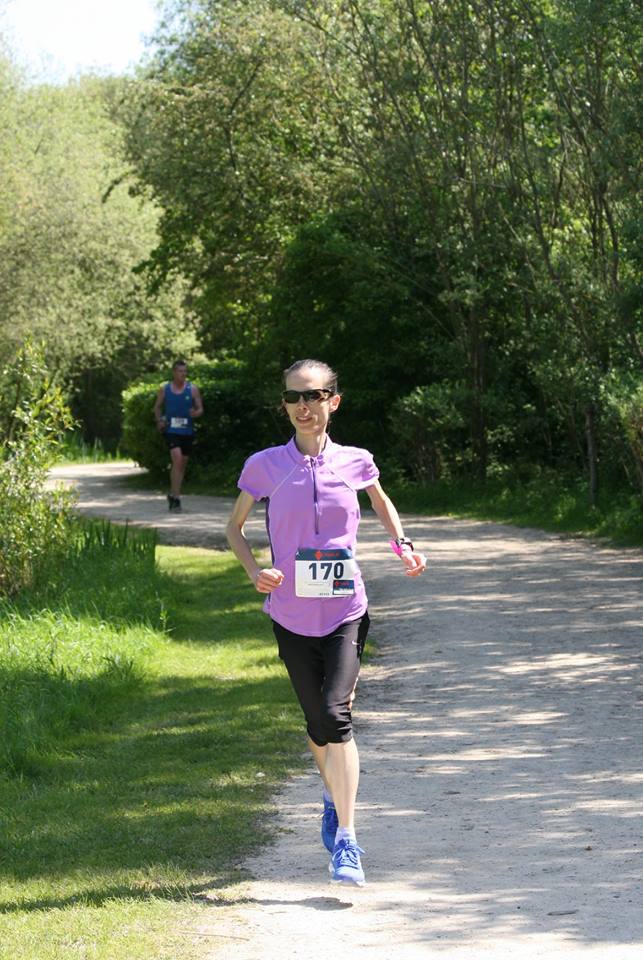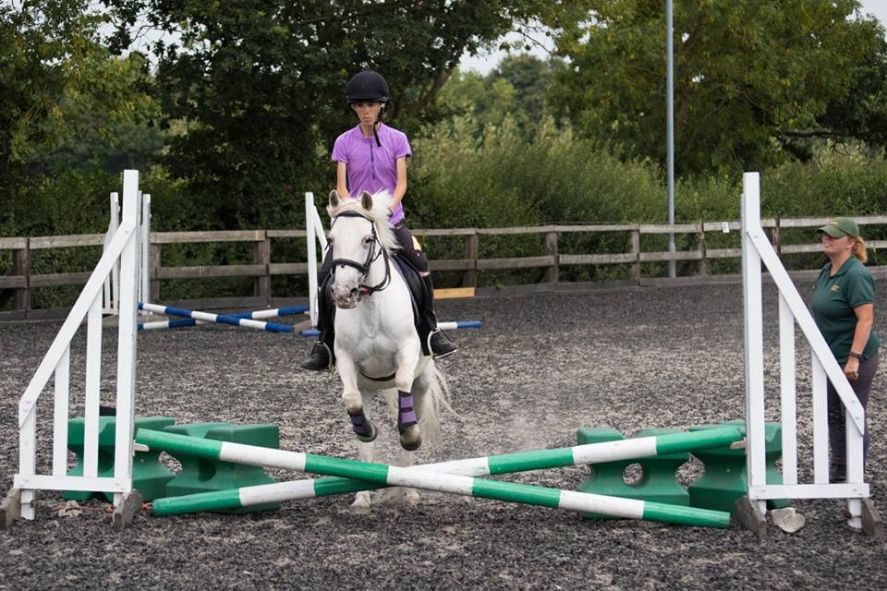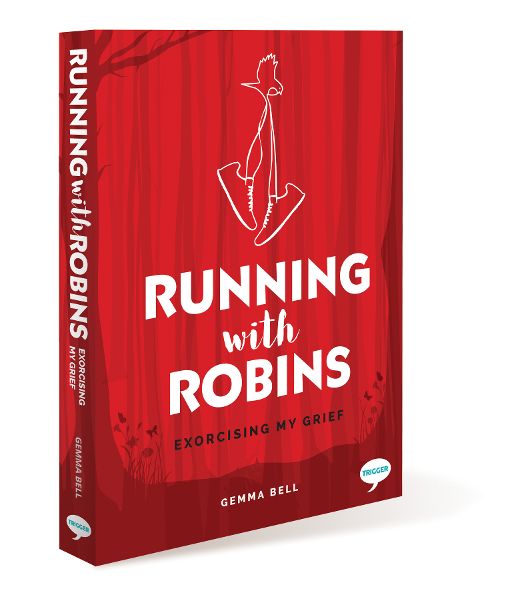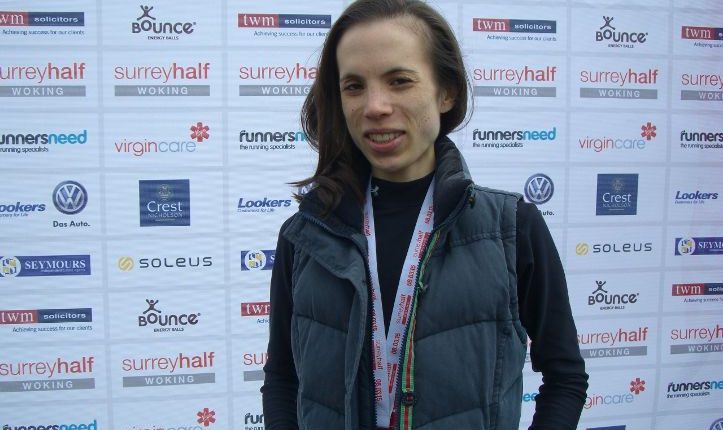In this article, writer Gemma Bell talks us through her first publication “Running with Robins” which describes how running to escape her grief turned into an obsession with exercise.
I’d always loved writing stories and telling tales of magical faraway lands when I was growing up, but becoming a published author was just a childhood dream. Yet now as I walk into my local Waterstones I’m ecstatic to see my my debut novel, Running with Robins, on the display in the entrance.
Unlike the fantasy stories I used to conjure up, my book is autobiographical. It took me nearly a year to write and I found it incredibly emotional as I reflected on my life. The core theme is coping with grief; I lost my father when he died of cancer when I was 17 years old and I turned to running to block out the pain.
The first part of my book focuses on my happy childhood, I was a complete tomboy – always scampering about outside rollerblading, cycling, cartwheeling in the garden with my twin sister. As I entered my teenage years though my life changed significantly as my father was diagnosed with Multiple Myeloma cancer in 2002. I was 13 at the time and struggled to cope with him being ill. I channelled all my energy into my studies; I wanted to make him proud knowing that he didn’t have long to live. I busied myself as much as possible with extra -curricular activities like the Duke of Edinburgh Award, ballet and gymnastics classes, netball and swimming matches. I didn’t think about the cancer.
 Dad had always been my hero, I could always depend on him so to witness him deteriorate so dramatically and be unable to do the things he used to do was heart-wrenching. He was immensely brave and fought a difficult battle right until the end when he passed away in 2006. I was 17 by then and in the middle of my A-levels. My life was suddenly turned upside down without him. I was in limbo-land and didn’t know how to come back to reality.
Dad had always been my hero, I could always depend on him so to witness him deteriorate so dramatically and be unable to do the things he used to do was heart-wrenching. He was immensely brave and fought a difficult battle right until the end when he passed away in 2006. I was 17 by then and in the middle of my A-levels. My life was suddenly turned upside down without him. I was in limbo-land and didn’t know how to come back to reality.
I began running to escape my grief. Dad had run all his life and finished the London Marathon in 2 hours 58minutes but I was not a natural runner. I nearly gave up after my first attempt because it was so challenging however I persevered and soon caught the “runner’s bug”. I found it therapeutic and uplifting. The rush of endorphins afterwards was addictive.
I preferred to run in the woods rather than on the pavements or the treadmill because being amongst nature is far more interesting. I adored spotting all the wildlife whilst on my runs like deer and squirrels but especially robins because they are my favourite bird and never fail to cheer me up with their cheekiness and delightful tweets. They would remind me of dad because he used to chat to them whilst he did the gardening.
I continued running at university to help me relax during my studies. Plus running is free which certainly helped with a small student budget. I entered many 10k and half-marathon races to give myself goals to work towards. I loved the fact you were guaranteed a medal for just participating and I enjoyed meeting other runners. At this stage running was just a hobby and nothing serious, it wasn’t about getting PBs but keeping fit and relieving stress.
I lived to get faster race times and would feel depressed if I didn’t improve. Nothing else mattered
In 2011 at the end of my Masters Degree I wanted to do something significant in memory of dad so I decided to train for the London marathon like he had done 23 years ago. The training was arduous during the winter months but worth it as I was spurred on by the thought of dad; if he could do it, so could I. Raising money for Help the Hospices Charity also helped me to stay focused because I couldn’t let down the dozens of friends and family who had sponsored me. I crossed the finish line in 3 hrs 35mins crying with happiness and sadness. I couldn’t believe I had run literally in my father’s footsteps. I hoped he would have been proud of me and wished he had been alive to see me achieve this.
After the event I thought I’d stop running having reached my ultimate goal. But I didn’t stop. I couldn’t.
The latter half of the book reveals how I became obsessed with running and how dangerously close I came to dying when I collapsed after a run in 2015. The paramedics who saved me said I’m lucky to be alive. I had lost control of myself. Exercise had taken over my life. I lived to get faster race times and would feel depressed if I didn’t improve. Nothing else mattered. I detached myself from family life and felt very isolated and lonely. In some ways, collapsing was the wake-up call I needed to put an end to this self-harm. I see it as a blessing in disguise.
Whilst recovering mentally and physically I began writing about my feelings. I wanted to turn my experiences into something positive and produce a book for others to read.
 Writing this book has been one of the hardest things I’ve done. I’ve exposed myself and felt vulnerable at times because I needed to explore more deeply how and why I took running to the extreme. It was the first time I have poured my heart out and admitted to myself that I was wrong and had to change.
Writing this book has been one of the hardest things I’ve done. I’ve exposed myself and felt vulnerable at times because I needed to explore more deeply how and why I took running to the extreme. It was the first time I have poured my heart out and admitted to myself that I was wrong and had to change.
However, it also gave me strength and I found it liberating to finally express my emotions which I had suppressed for years. I now appreciate how fortunate I am to be here and able to embrace life.
I think it’s important that we encourage young people to talk about their emotions especially grief because when I lost my dad there weren’t organisations that offered the specialist support required. I bottled up my feelings and cocooned myself because I didn’t know how to handle the overcoming sadness in my life. Running was my only outlet and temporarily made me feel better but once the “runner’s high” had evaporated I felt low and sad again.
I now know that opening up and sharing with others how I feel is essential to getting through grief. Running alone is not the answer.
 I want my book to give others an insight into what life is like for a young person losing a parent to cancer and show how a passion like running can become an addiction.
I want my book to give others an insight into what life is like for a young person losing a parent to cancer and show how a passion like running can become an addiction.
My life has been completely transformed since my recovery and writing this book. It’s provided me with a new direction and opportunities to flourish. I hope my story will inspire others to do the same and reassure them that losing someone you love isn’t the end. You can still enjoy life and find new ways to feel happy and fulfilled.
Click here to purchase a copy of Gemma’s book through Waterstones

